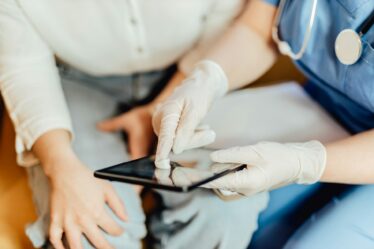
Were you recently in a car accident?
It is quite a traumatic experience. Even if you’re not injured, a car accident can result in damage to or replacement of your vehicle, as well as higher insurance premiums or even cancellation of your policy. We’ve all been there–figuring out what to do next.
The good news is there are some steps you can take if you get injured in a motor vehicle crash. In this article, we’ll list the top tips for what to do after an accident. It can allow you to proceed effectively and quickly, thus returning to your life as soon as possible.
1. Assess the Damage
Check for any visible exterior or interior damage to the vehicles involved. Examine all four sides of each car for dents, scratches, and broken glass. Pay attention to how the vehicles are positioned, as one or both may fluidly shift after the impact.
Ensure the brakes, headlights, and other lights are in working order. Also, check for fluid leaks such as engine oil, coolant, transmission fluid, or brake fluid. Take note of any other issues, such as tire pressure, wheel alignment, or suspension damage.
If you or the other driver decides to contact the police, any evidence should be photographed or recorded before exchanging insurance information.
2. Seeking Necessary Medical Attention
After a car accident, taking the proper steps to ensure the best future outcome is essential. It is important to seek necessary medical help if you have any injuries. Depending on the nature of the damage, you may need to go to an emergency room, urgent care center, or your primary care physician.
If you are experiencing shoulder pain from the accident, visiting a chiropractor for shoulder pain treatment may be beneficial. Chiropractors can provide short and long-term relief to help you heal and recover from an auto accident. Taking the proper steps after a car accident can help make recovery smoother.
If the individual requires emergency medical care and transportation, they should call 911 or visit the nearest emergency room. One can see an urgent care clinic or primary care doctor if the injuries are non-life threatening.
It is essential to carefully document any medical care related to the incident, including treatments, tests performed, and medications prescribed. Additionally, if a doctor has issued you an online medical certificate for any reason related to your accident, you should also keep this for your records. Documentation of this type will be crucial should the individual seek compensation for medical expenses caused by the accident. Lastly, if any expected pain or side effects of the incident arise in the days or weeks after the accident, one should immediately follow up with a doctor.
After this ordeal, you may want to think about your priorities and safety to ensure that if this happens again, you and your family are covered. Taking a look into life insurance (this site insurancehero.org.uk/average-cost-of-life-insurance.html can help you), will be beneficial, as you never know what could happen down the line.
3. Calling the Police
After a car accident, it is essential to call the police if the accident is a hit and run, if there are any injuries, or if any party disputes who was at fault. The police can take statements from all parties involved, inspect the vehicle damage, and issue a ticket if the situation calls for it. Calling the police can help protect both parties in the event of an insurance claim or a lawsuit.
Moreover, if any criminal activity plays a role, the police can investigate and take action accordingly. A car accident can be tremendously stressful, yet calling the police is essential to producing a favorable outcome.
4. Collecting Evidence
Collecting evidence after a car accident is a crucial step to take to help ensure you are adequately compensated. Document everything you can, such as names of witnesses, contact information for the other driver, pictures of the damaged cars, and police reports.
Take several pictures from different angles to capture the full extent of the damage so that you have them if you need to reference them. You should measure distances between vehicle markers like “skid marks” or other points of impact to use as supporting evidence.
Collect as much evidence as possible, including details from yourself, the other party, or any witnesses. This evidence is crucial when pursuing compensation after a car accident. If the accident involves drink driving, consulting drink driving solicitors can be key in ensuring your rights are protected and helping you get the compensation you deserve. Proper documentation can significantly contribute to the success of your case.
5. Exchange Insurance Information
No matter how minor a car accident is, it is essential to follow the appropriate steps to ensure a successful insurance claim is made and everyone involved is safe. After a car accident, one first step is exchanging insurance information with the other driver. It should include car make and model, license plate numbers, and insurance company and policy details.
Additionally, you should make a police report, and all parties involved should take photos of the accident scene. It serves as accessible documentation in the case of a claim dispute. Lastly, any injuries sustained should be noted and reported immediately. Following these steps can make the insurance process much more accessible.
6. Seeking Professional Assistance
Consulting an attorney is often the first step, as they can evaluate your scope of liability and damages and ensure your rights are protected. Your attorney can also review the insurance policy to ensure the applicable policy covers the accident. Finding medical care in the form of an emergency doctor, usually from an emergency room or an urgent care facility, should also be done. Don’t forget to look into Auto Collision Repair as well, because you will need your car to be fixed, but you might be able to get compensation to pay for any repairs you may need.
The doctor and the attorney can provide helpful advice on how to proceed with insurance and potential legal help. Depending on the accident’s severity, having the car or truck inspected may also be beneficial to ensure it is safe for the road. Thus, seeking professional help from a doctor and an attorney is necessary after a car accident.
7. Connecting With Witnesses of the Car Accident
Connecting with witnesses often helps clarify unanswered questions or disputes concerning a car accident. You should pick out witnesses who had a clear view of what happened during the accident and obtain their contact information, such as telephone numbers or email addresses.
Reach out to those individuals, explain the situation, and ask if they will provide a witness statement directly to your insurance company. As a result, you can offer more evidence and better support any evidence you’ve already presented in your case.
Take Control of the Situation After a Car Accident
The aftermath of an accident can leave you feeling helpless and overwhelmed, but these steps will help you take control of the situation. Call the police, exchange information with all involved parties, take pictures of the scene, and seek medical attention if needed.
Moreover, remember to contact your insurance provider to start the claims process immediately. Taking these steps after a car accident can be critical in getting your needed help.
If you find this article helpful, please read more on our blog.



